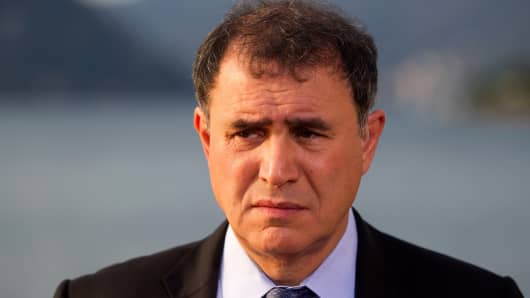A spat has broken out between Hungary's Economy Ministry and Roubini Global Economics about who is to blame for the downward spiral of the national currency, the forint, after Roubini's firm Roubini Global Economics (RGE) recommended shorting the currency.
Hungary's Ministry for National Economy said in a statement that the forint began to depreciate after economist Nouriel Roubini – dubbed Dr Doom for his pessimistic forecasts – said in a newsletter that failure to secure a deal with the International Monetary Fund was bad news for the currency.
The forint has been in decline since last week hitting seven-month lows earlier this week but has since gained some ground.
Hungarian officials rounded on Roubini saying; "On Thursday speculators seem to have taken Roubini's advice and attacked the forint."
But Roubini economists cited comments made by Economy Minister Gyorgy Matolcsy in a newspaper column, in which he seemed to favor the country adopting more unorthodox economic policies as the reason for the currency's weakness.
Jelena Vukotic from RGE said in a report that Matolcsy's statement that "the policy of a strong forint between 2002 and 2010 was a mistake" was the main reason for the forint's slide.
Vukotic added that the government's controversial policy reinforced their view that the currency would "continue to feel the heat."
Her comments were refuted by the Ministry on Wednesday.
"It has become clear that the weakening of the forint since the middle of the week was not triggered by an article of the Minister for National Economy," instead, the ministry suggested that it was speculators who were using this as "an excuse to mask their attack."
The country has battled balancing economic growth with a ballooning public debt after having been hit hard by the financial crisis of 2008. The Organization of Economic Development (OECD) warned that the country faced "severe headwinds" hampered by "controversial domestic policies,"in its Economic Survey of Hungary 2012.
Laszlo Wolf, deputy CEO of OTP Bank, told CNBC that there was better growth potential for the eastern European region, including Hungary,than in Western Europe.
"[Hungary] had zero growth in 2012 but we expect a better situation in 2013," Wolf told CNBC Wednesday.
By CNBC's Shai Ahmed; Follow her on Twitter @shaicnbc


